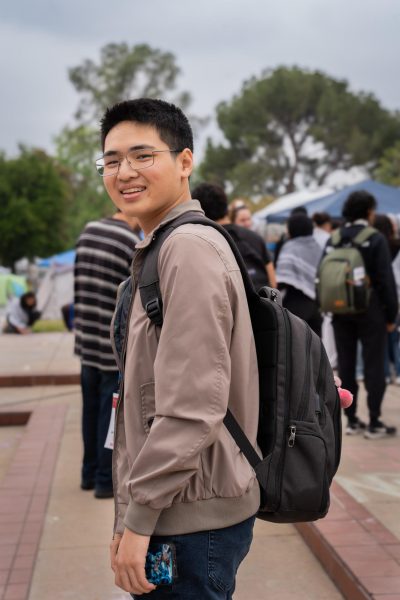Mt. SAC establishes workgroup to weigh AI, ChatGPT
A workgroup has been formed to decide how professors should handle AI and ChatGPT in the future
An AI-generated image of a senate discussing AI. This image was created with the assistance of Fotor.
The Academic Senate has formed an artificial intelligence workgroup to decide how professors should handle ChatGPT, an AI chatbot that can intelligently respond to any questions or prompts inputted by the user.
There has been controversy over Chat GPT as some schools and universities have outright banned this new AI as it can be used for generating essays or pass tests.
“When I first started thinking about ChatGPT back at the end of fall, I was really scared by it,” said political science professor Raul Madrid Jr., who is involved in the workgroup. “I thought this is not good. This is the end of education, as we know it. Higher education is going to be, not good.”
ChatGPT was released to the public last year. Subsequently, many articles were published stating that students were using ChatGPT to generate essays. These articles that stoked fear in the public were from publications like The New York Times, Business Insider and Forbes.
“Now that I’ve had some time to think about it, and I’ve done a fair amount of research on it, I’m not as scared of it as I was before,” Madrid said. He added, “I don’t think that AI is something that we should be scared of.”
Political science professor Kelly Rivera, also part of the workgroup, said, “We want to find what are the benefits and how can it be used as a tool in modern, higher education. … It will be a piece of what higher curriculum will have to look at in perpetuity.”
Madrid expressed how AI can be used as a new way to teach rather than a detriment to higher education.
“I think there’s an educational process to talking with faculty about this to informing them about how it could be used for good and for bad,” he said. “We need to know how to use it. We need to get the faculty the tools to learn how to use it and then they can deploy it. I think we can so students will benefit from that.”
Madrid showed different examples of how ChatGPT can be used in an educational setting.
“English language learners can use the tool to get on the same playing field as native English counterparts,” he said.
He explains how ChatGPT can be used as a chatbot for English language learners to help them get immersed in conversation and learn English through conversation.
According to Madrid, the workgroup will be submitting recommendations to professors possibly by the end of April.



